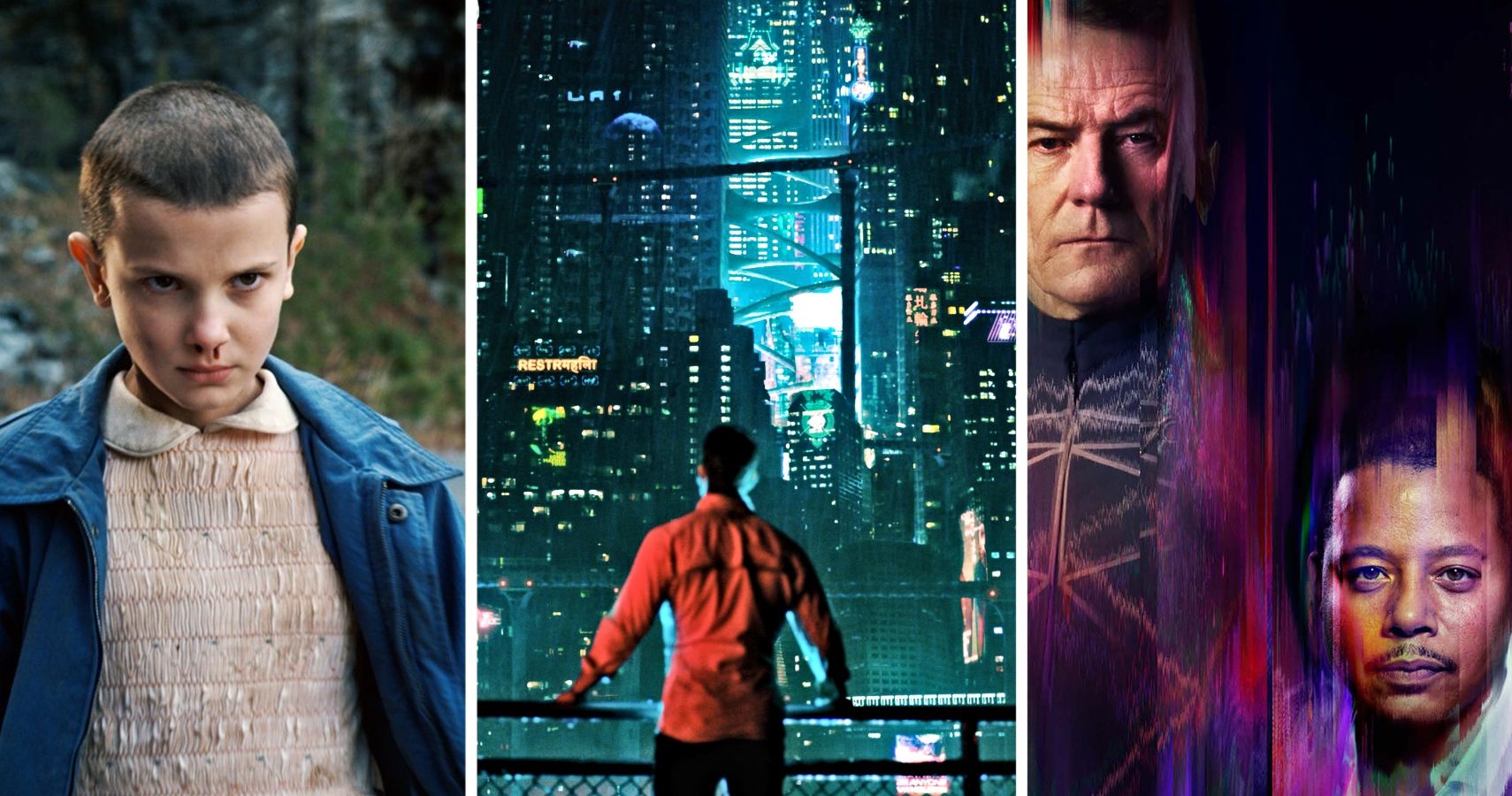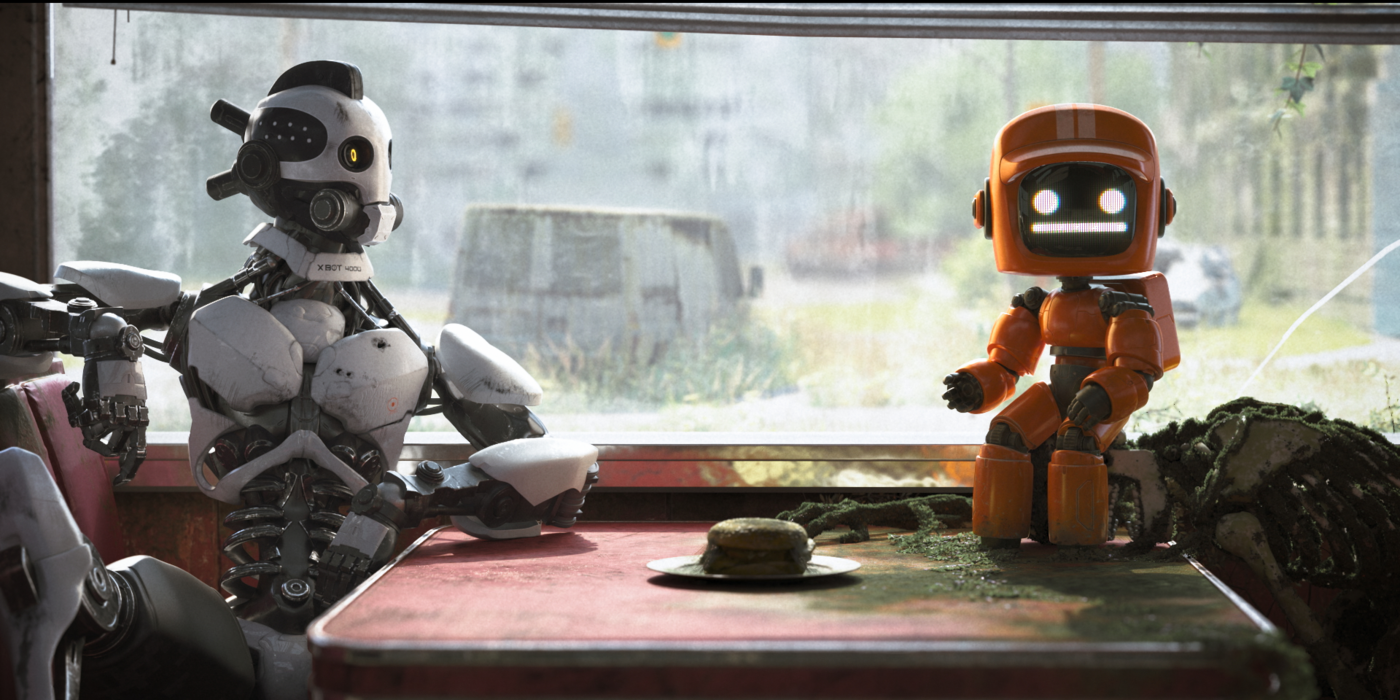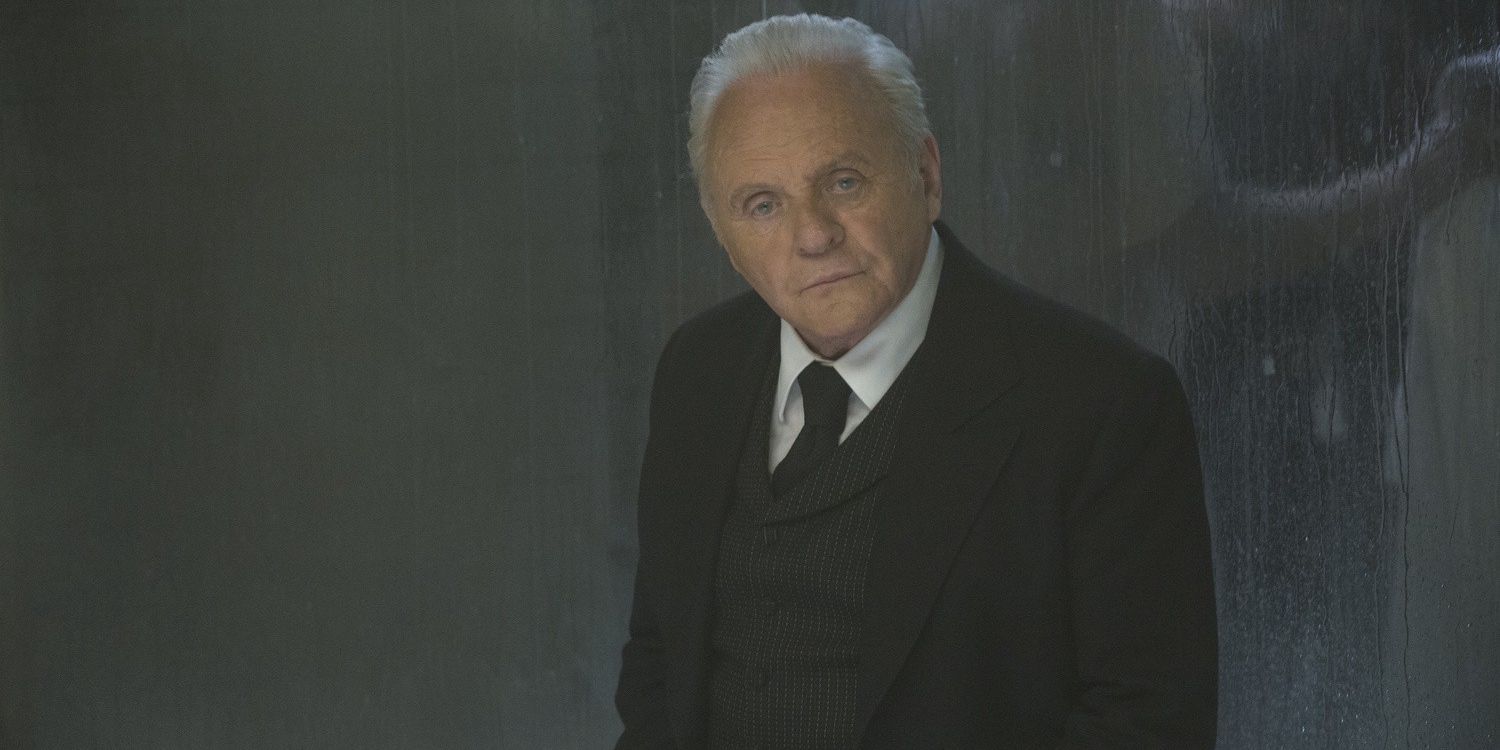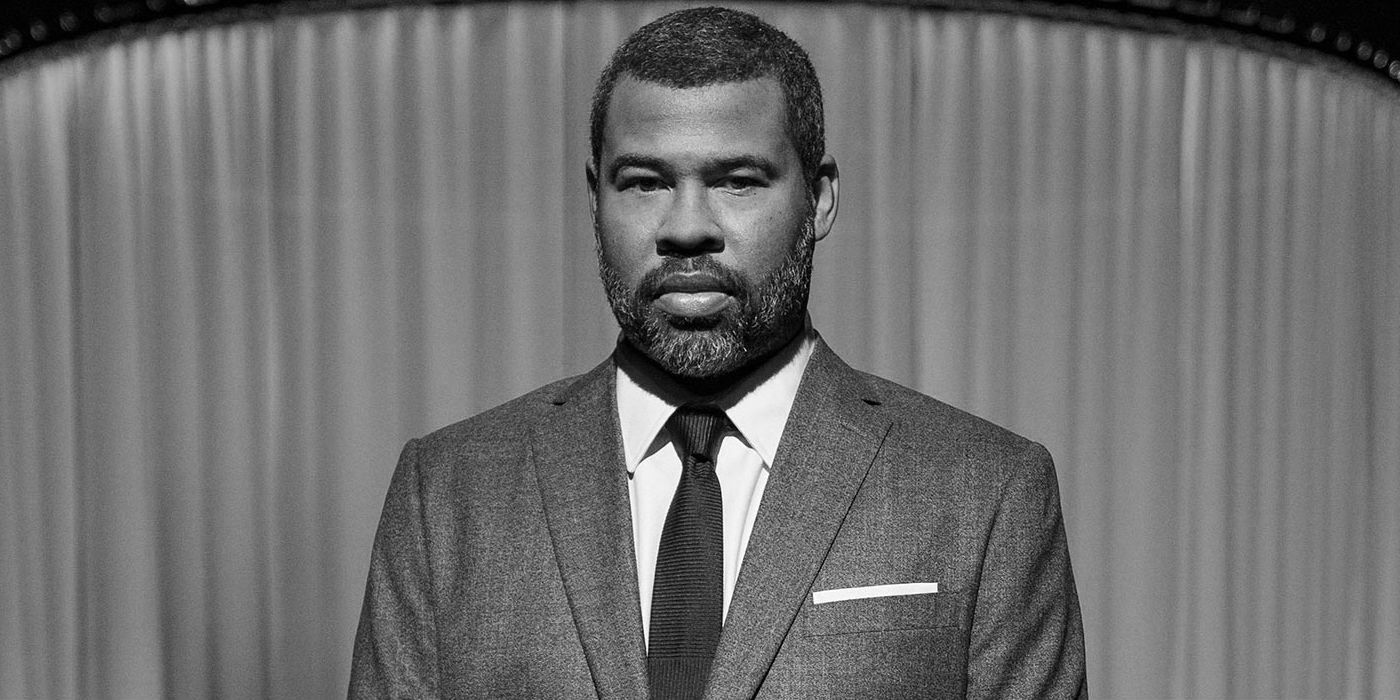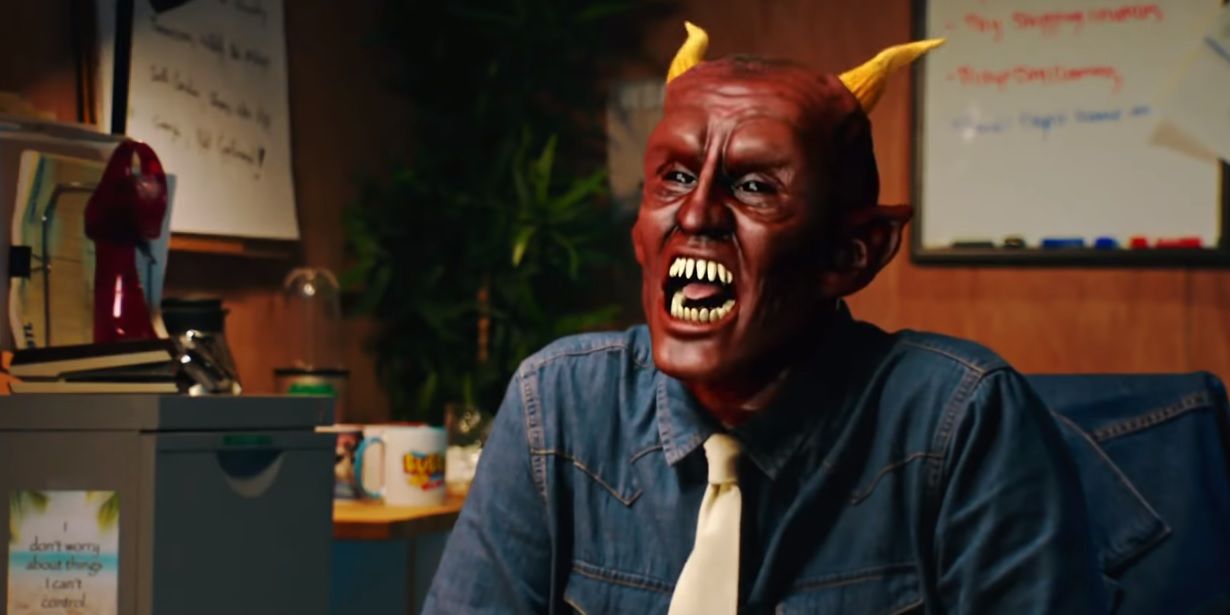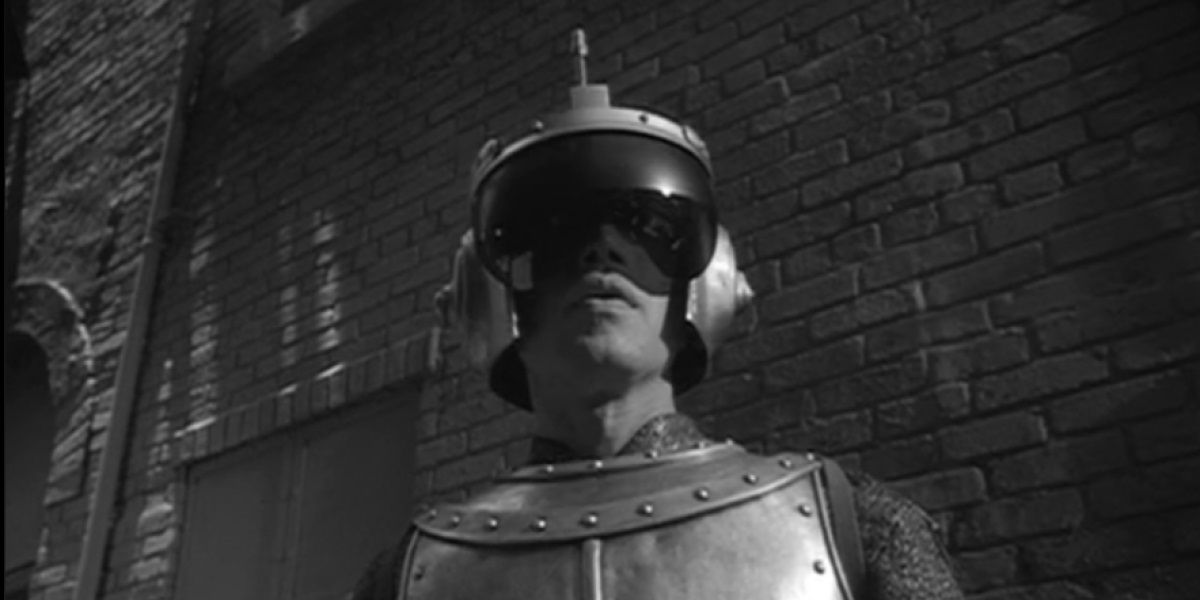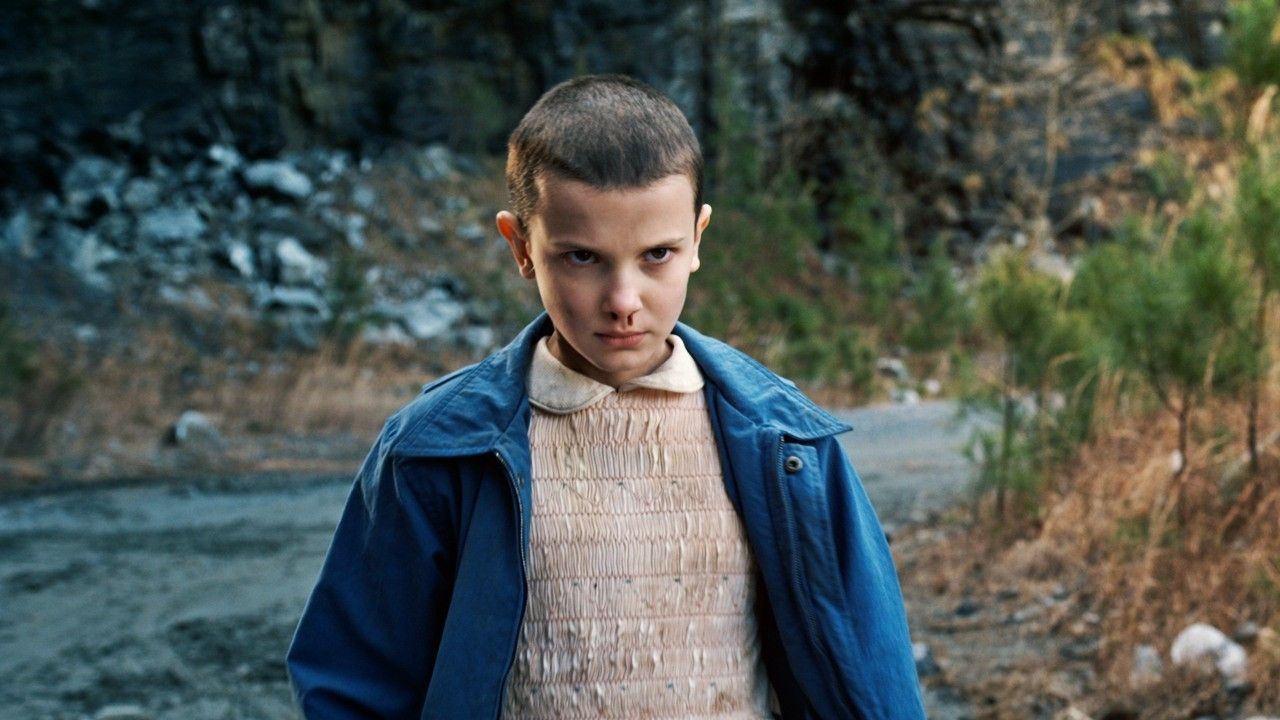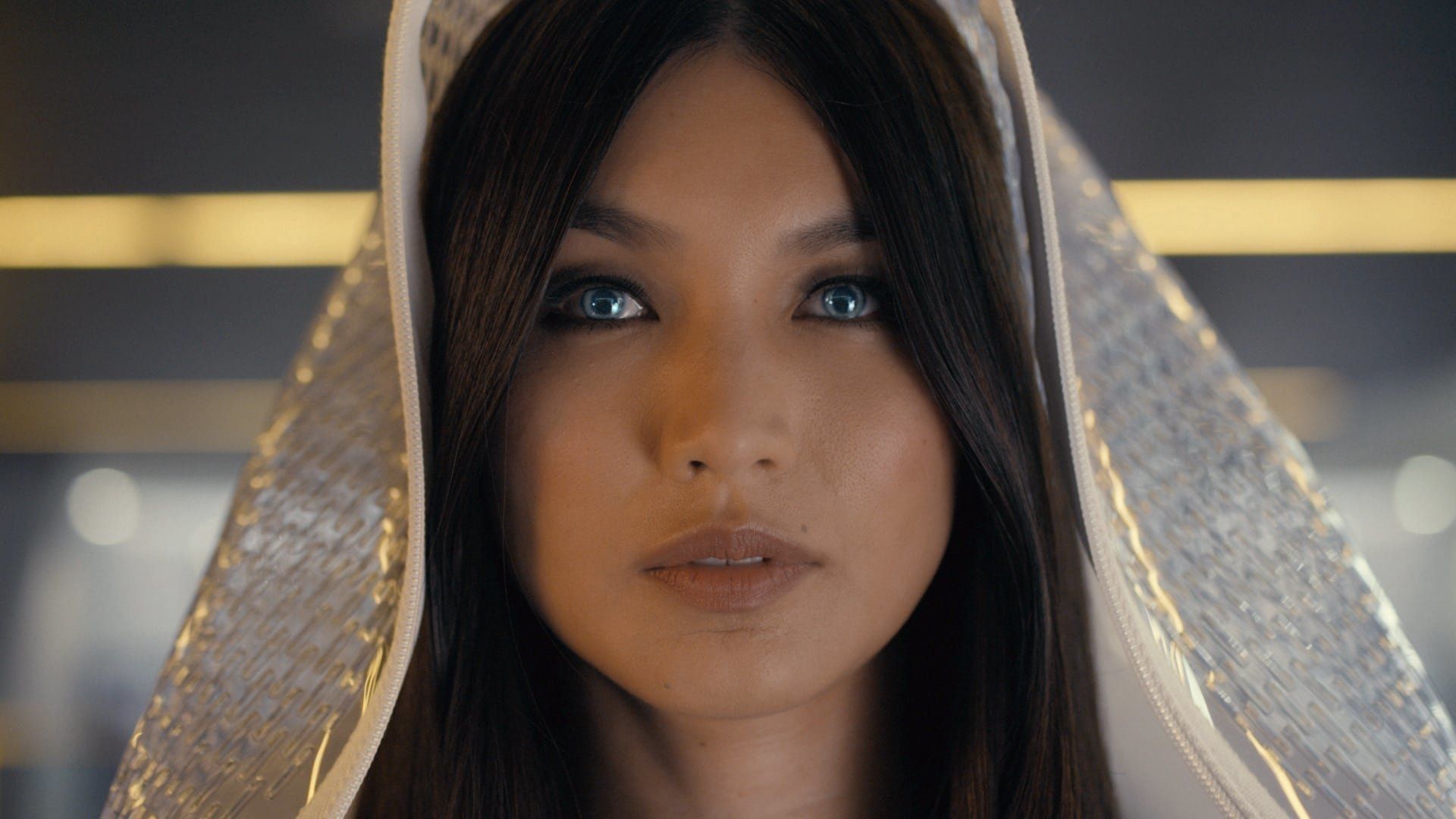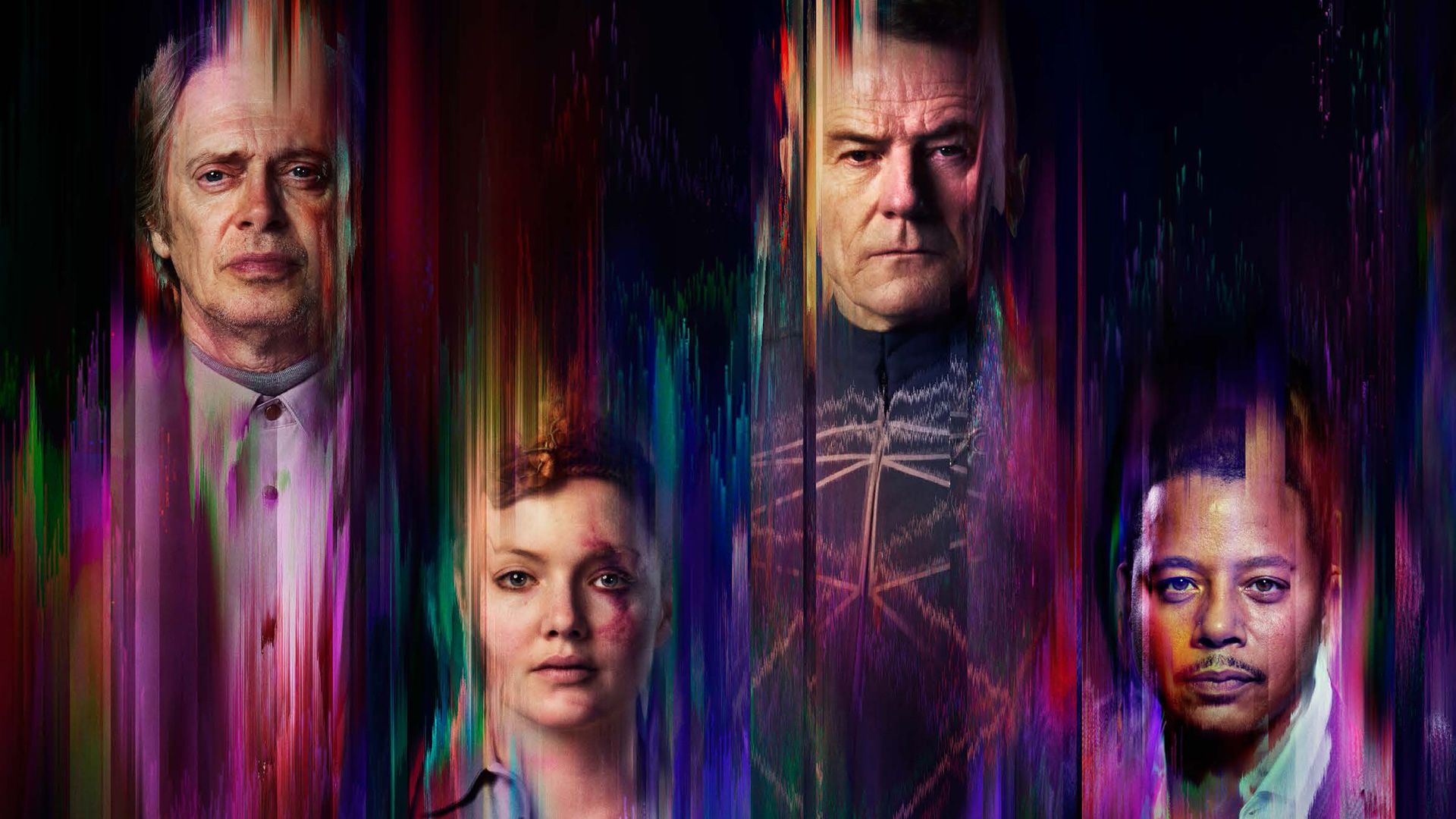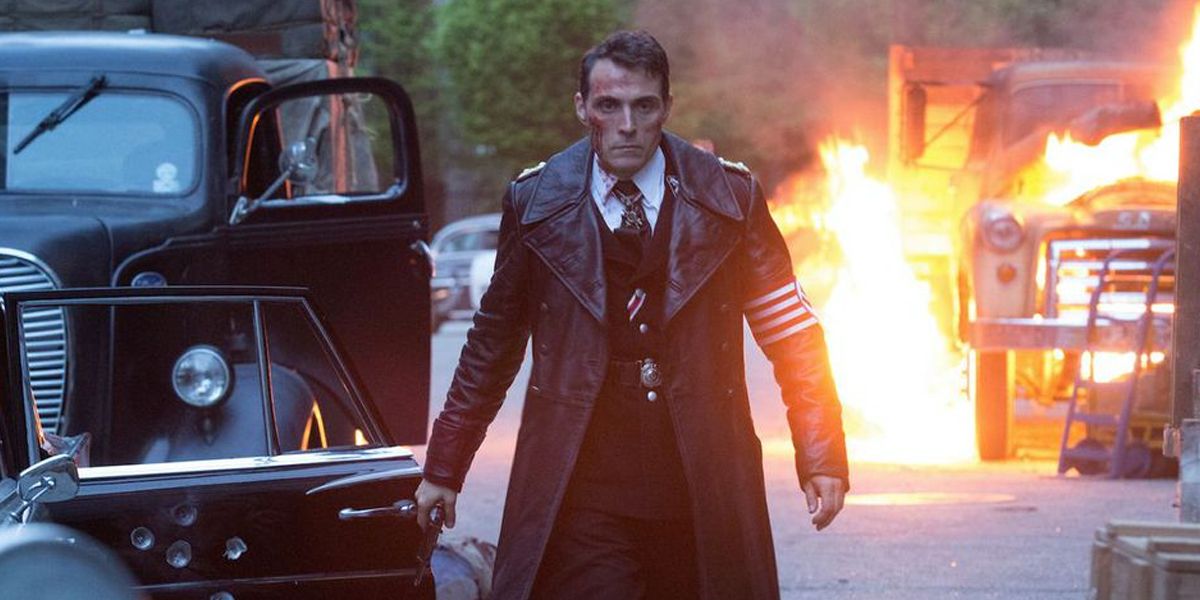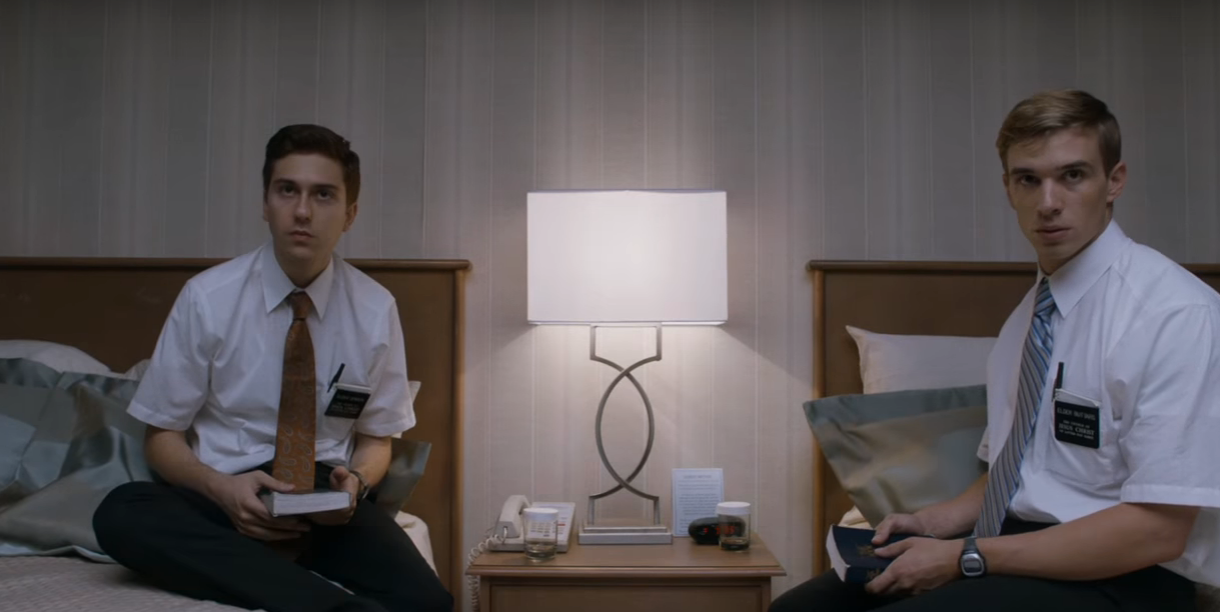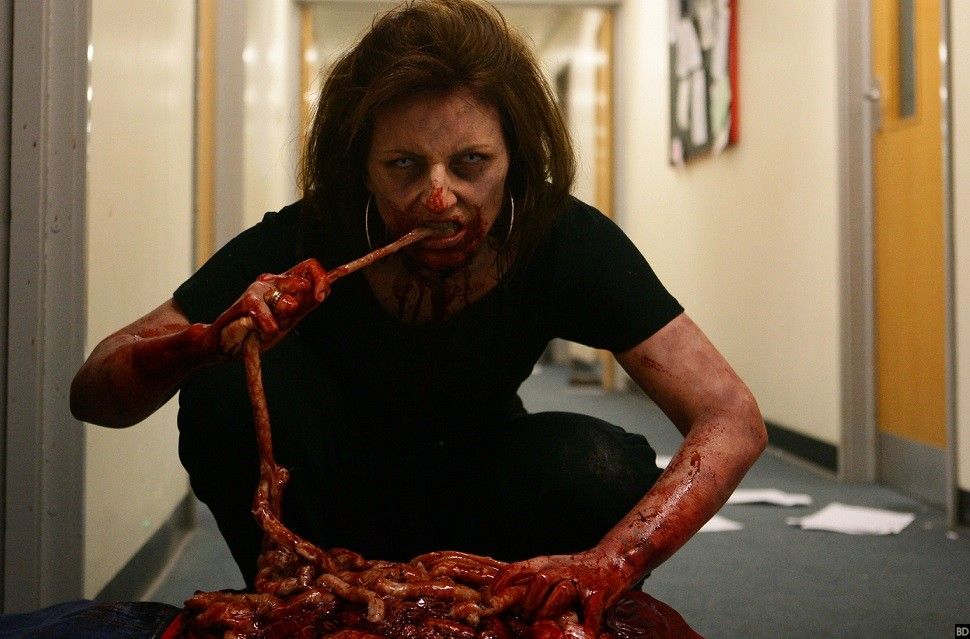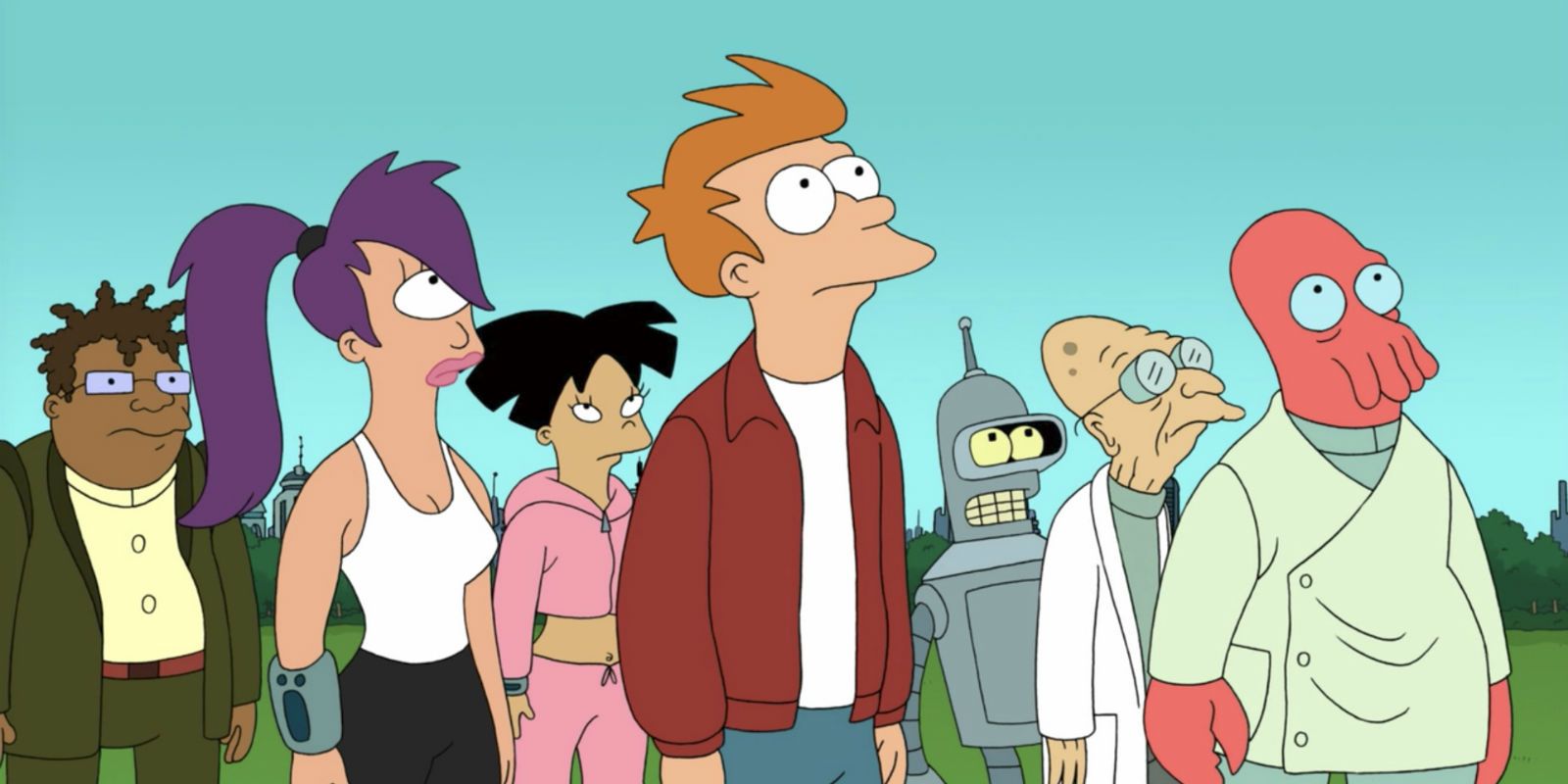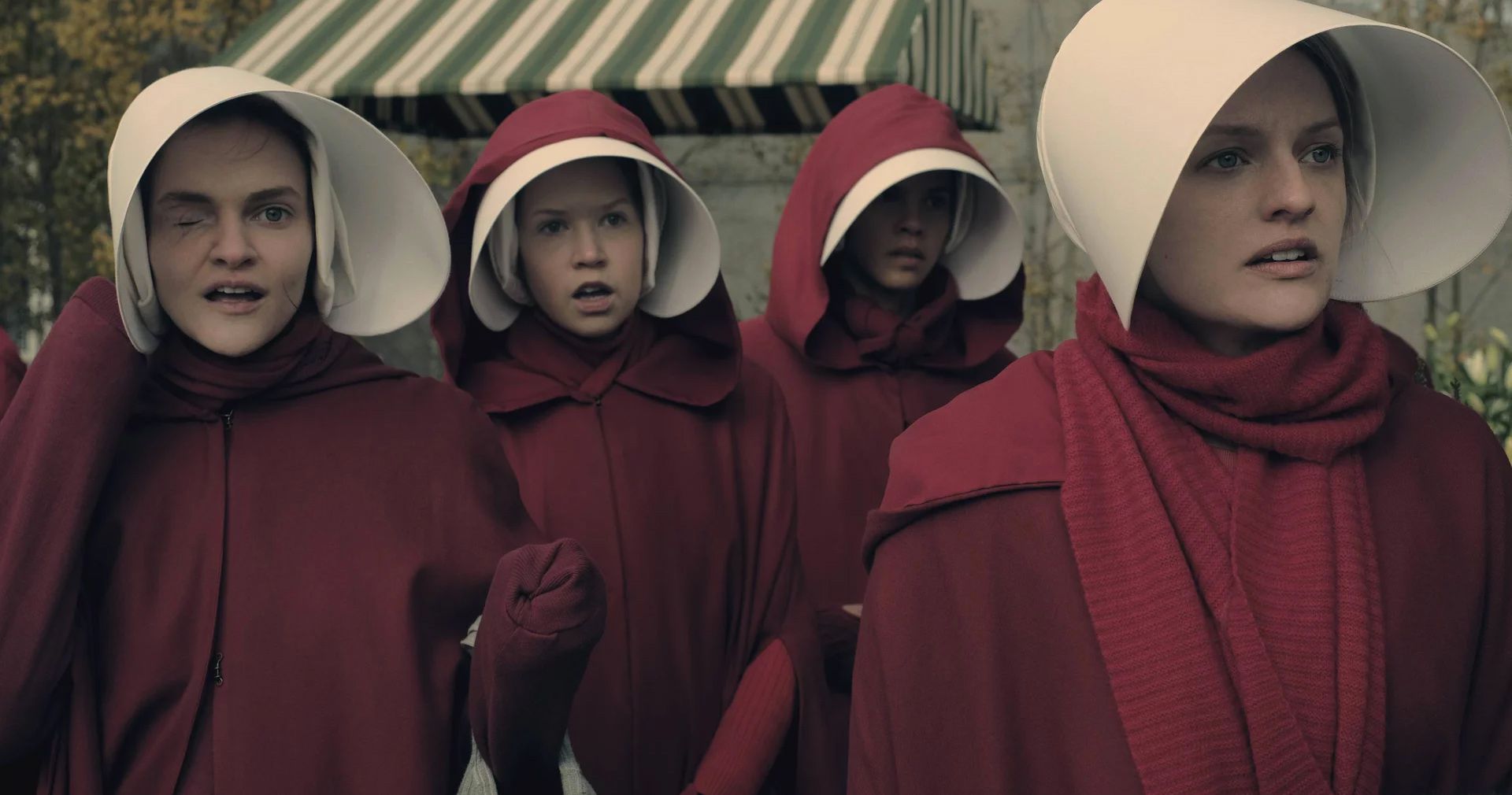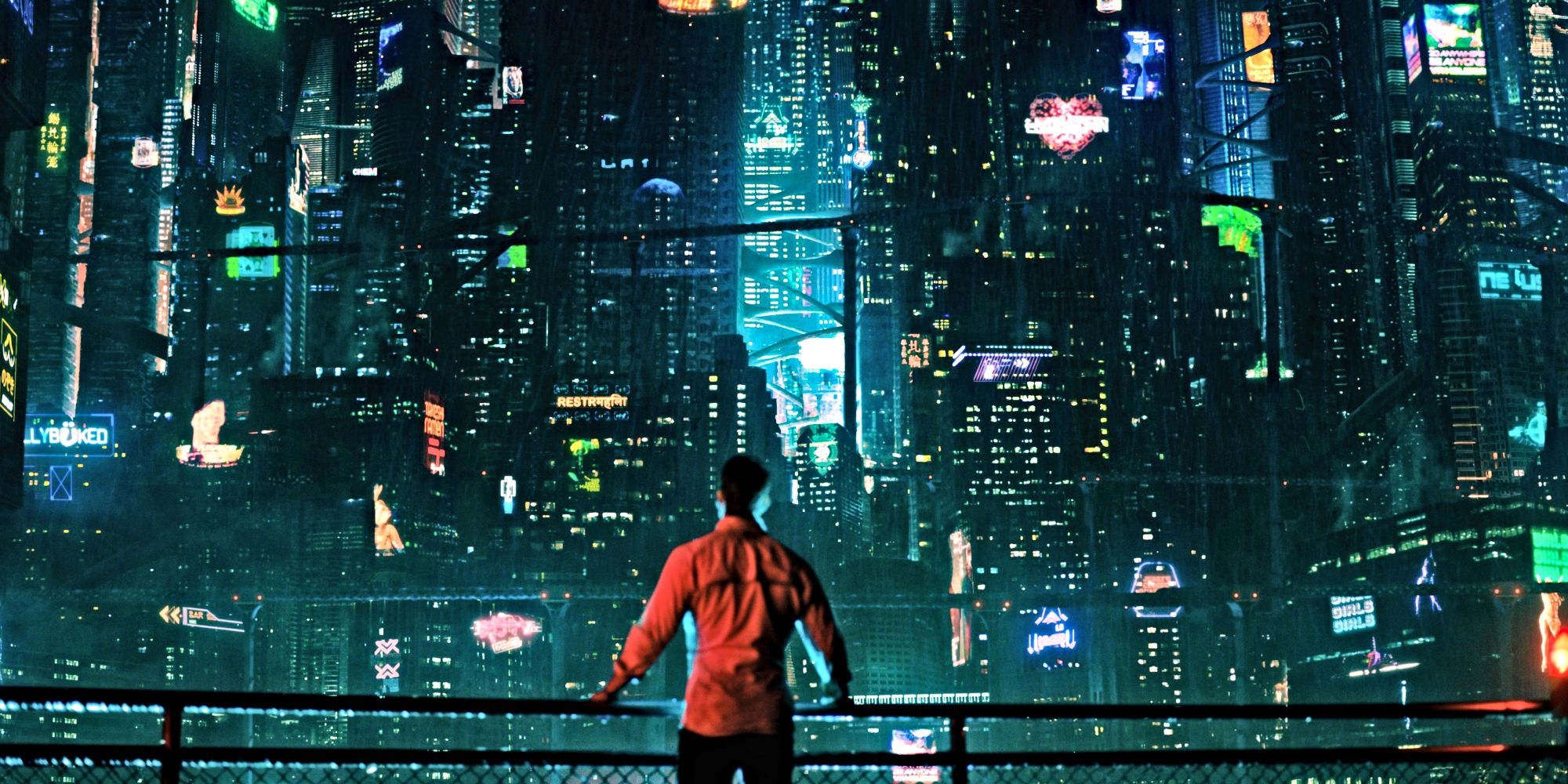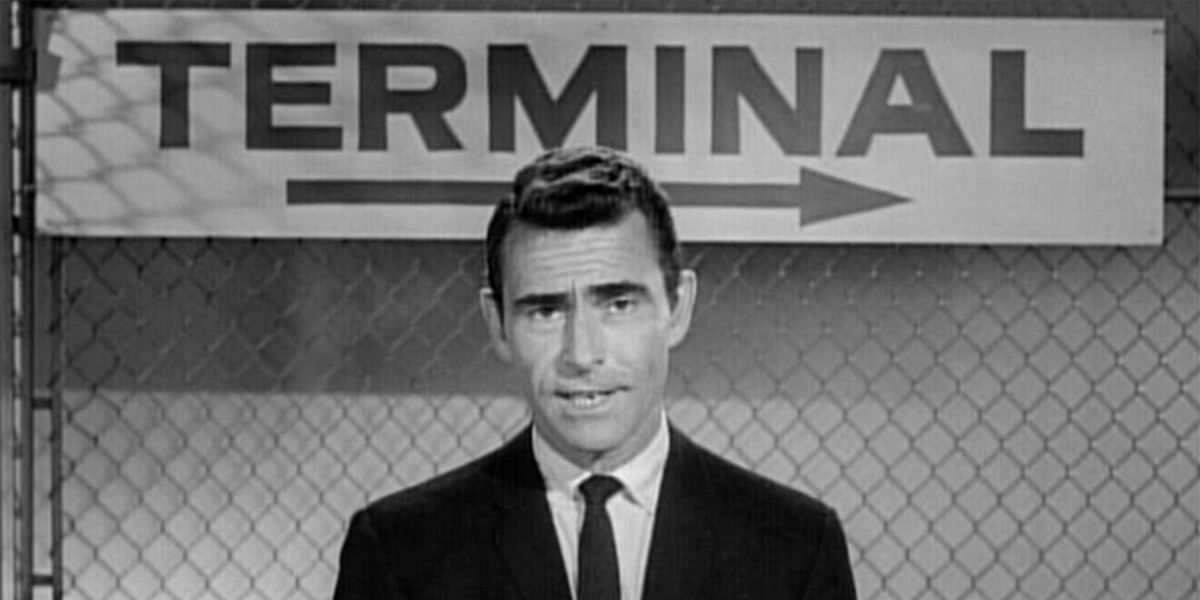Black Mirror is one of the greatest shows on the air right now. But since Charlie Brooker works tirelessly to ensure that every episode of Black Mirror is spectacularly entertaining, breaks new storytelling ground, and makes an insightful point about today’s dark society, it can take him a while to write a new season – and when he does, we only get six new episodes.
So, although we can be in love with the show and enjoy every second of it, we’re left for months on end without new material. It’s very addictive and it’s an easy show to miss. So, here are 10 Shows To Watch If You Like Black Mirror.
Updated by Ben Sherlock on March 29th, 2020: Black Mirror continues to be one of Netflix’s most popular series. Following its acquisition of the show from its British home, Channel 4, Netflix has doubled the number of episodes per season (the fifth and most recent season notwithstanding) and delivered three new seasons, as well as an interactive choose-your-own-adventure special, Bandersnatch. While Black Mirror fans are left waiting for new episodes, we’ve updated this list with a couple more entries to binge-watch in the meantime.
Love, Death & Robots
Failing in their attempts to reboot the trippy R-rated animated anthology movie Heavy Metal, Fight Club director David Fincher and Deadpool director Tim Miller instead put their heads together and repurposed their material to use in the Netflix anthology series Love, Death & Robots.
Every episode of Love, Death & Robots is animated in its own unique style, set in its own unique world, with a storyline dealing with lofty sci-fi concepts.
Westworld
One of the primary themes in Black Mirror is society’s fear of technology – specifically, fear of the effects of increased use of technology. HBO’s Westworld, adapted from the Michael Crichton novel of the same name, deals with the same theme.
The show is set in a futuristic theme park styled after the Old West in which guests can live out their fantasies by engaging in duels with robotic cowboys and having sex with robotic prostitutes in brothels. This series is a lot more thought-provoking and existential than the book’s previous adaptation.
The Twilight Zone (2019 Revival)
The latest revival of The Twilight Zone isn’t as masterfully made or groundbreaking or timelessly nuanced as Rod Serling’s original, but then, only about ten shows in the history of television have been, so that’s an unfairly high bar to have to clear. The new version of the show has more focus on the overt social commentary and shocking plot twists of Black Mirror than the more cerebral storytelling of the original Twilight Zone, so it’s still a must-see for Black Mirror fans.
As a side-note, narrator Jordan Peele’s social thrillers Get Out and Us play like cinematic, feature-length episodes of Black Mirror, albeit with more footing in the traditional horror genre (which, if anything, is a plus).
Bobcat Goldthwait’s Misfits & Monsters
Airing on truTV, Bobcat Goldthwait’s Misfits & Monsters only lasted for one season of eight episodes, but it was an underrated gem.
From the mind of comedian and filmmaker Bobcat Goldthwait, the show had a unique style that blended anxiety-fueled horror stories with Goldthwait’s particular brand of dark comedy (found in his movies Sleeping Dogs Lie and God Bless America).
The Outer Limits
The influence behind Black Mirror is commonly attributed to The Twilight Zone, the gold medal holder for socially conscious sci-fi anthology series, but a lot of inspiration has also come from The Outer Limits, which holds the silver medal. In particular, the Black Mirror episode “Men Against Fire” has a lot in common with “Hearts and Minds,” an episode of The Outer Limits’ ‘90s revival.
Whereas The Twilight Zone’s storytelling often revolved around supernatural elements, The Outer Limits has its grounding firmly in science fiction, much like Black Mirror.
Stranger Things
A lot of Black Mirror episodes – specifically the creepiest ones – involve regular people attempting to uncover a government conspiracy. If you respond to those episodes more than others, then check out Netflix’s other weird sci-fi series, Stranger Things.
Inspired by the movies of John Carpenter and Steven Spielberg and the novels of Stephen King, the Duffer brothers’ show is like The Thing meets It meets Close Encounters of the Third Kind. Season 1 begins with a kid going missing and the whole town panicking. What unravels is a supernatural tale of monsters and government experiments and parallel dimensions. If you haven’t already, check it out.
Humans
Humans is another British science fiction drama series that toys with lofty, existential ideas about the dangers of technology. It’s the story of a near-future society in which personal androids are available on the market, with the realities and fears of that possibility explored in detail.
Imagine if your Alexa looked and sounded like a person and she walked around your house like a butler – and then it malfunctioned and Amazon started recalling them. Like Black Mirror, Humans began on the British network Channel 4, and like Black Mirror, it didn’t take long for it to find a huge international audience and take off.
Philip K. Dick’s Electric Dreams
This show is often described as “a poor man’s Black Mirror,” and that’s a pretty apt description, but it’s good enough to make do for any Black Mirror fan who misses surreal anthology drama in the off-season. Each episode is based on a short story written by Philip K. Dick, whose stories have previously been adapted into movies like Blade Runner and Minority Report.
Like Black Mirror, some episodes of Electric Dreams have familiar faces that we’ve seen in movies and TV shows before, such as Bryan Cranston and Steve Buscemi. You see an actor you’ve seen before and it hooks you into the story.
The Man In The High Castle
The Man in the High Castle is like someone took the premise of a weird, less technology-focused, more socially-conscious episode of Black Mirror and dragged it out into an hour-long drama series with a few seasons. The show is set in an alternate history in which the Axis powers won the Second World War, and now, the whole world is controlled by Nazi Germany and Japan.
They’ve split America in half with a “neutral zone” in the Rocky Mountains. The show is currently three seasons deep and it’s been renewed for a fourth one, which has been confirmed by Amazon to be its last.
Room 104
This darkly comic HBO series from the Duplass brothers – a.k.a. the founding fathers of the “Mumblecore” indie cinema movement – is an anthology series, just like Black Mirror, with a new storyline and set of characters in every episode. However, the distinction with Room 104 is that it never leaves a certain hotel room.
The whole show is set in that same hotel room. But the stories are each very different. One will be a comical story, the next will be a horror story, and there could be some science fiction mixed in there – like Black Mirror, Room 104 has an eclectic range of styles.
Dead Set
Before he became famous for writing Black Mirror, Charlie Brooker made his name with this miniseries about a zombie apocalypse that happens during the taping of a reality TV show. Some celebrities are staying in the Big Brother house, and then suddenly, the dead rise from their graves and start eating people.
It’s an interesting angle from which to tell a zombie story, and one that reflects modern society and technology. This whole miniseries is like one extended episode of Black Mirror. In fact, it was during the filming of Dead Set that Brooker got the germ of the idea that would eventually grow into the “White Bear” episode from season 2 of Black Mirror.
Futurama
Black Mirror uses an exaggerated future to satirize the present. That was the exact M.O. of Matt Groening and David X. Cohen’s sci-fi animated comedy series Futurama. Obviously, the Simpsons creator’s show is more overtly comical and absurd, but its satire is just as sharp and thought-provoking.
Black Mirror has ideas like a brainwashed military police and an-eye-for-an-eye punishment being sold as entertainment to tourists, while Futurama has ideas like a suicide booth or scientists being glamorized as celebrities at a red carpet event. There’s not an awful lot of difference between the two shows, other than the obvious tonal difference.
The Handmaid’s Tale
Black Mirror is strikingly relevant in today’s sociopolitical landscape, and in that relevance, it is joined by The Handmaid’s Tale, Hulu’s bleak serialized adaptation of Margaret Atwood’s literary classic. Elisabeth Moss stars as Offred, a woman who is essentially enslaved for her womb in an ultra-patriarchal dystopian future society. The series isn’t for the faint of heart, as it depicts some pretty gut-wrenching stuff.
But for all the terrible things that happen to people in The Handmaid’s Tale, what really gives it its impact is the fact that Atwood didn’t write anything that hadn’t already been done to people in the real present day. It’s horrible but eye-opening – like Black Mirror.
Altered Carbon
Every episode of Black Mirror makes a point about technology and society, but usually, that point is that technology is bad; technology in the hands of our modern society is really, really bad; and playing God is wrong. Altered Carbon, a trippy futuristic cyberpunk series on Netflix, deals with those very same issues as it tells a story about the hazards of cloning and transferring the human consciousness from body to body.
Season 1 stars Joel Kinnaman, while the second season, which will be released on Netflix later this year, will star Anthony Mackie as the same character in a new host body. Yeah, it gets weird.
The Twilight Zone
Any fan of Black Mirror needs to watch The Twilight Zone, the show that invented its anthology format. Narrator Rod Serling takes us through each strange, disturbing, or otherwise creepy tale of the supernatural, the macabre, or, in the really, really creepy ones, a version of our own reality. Every episode makes a startling point about the society of its time through allegory.
There have been a few revivals of the show, including a new one narrated by Jordan Peele, and if you like the spooky anthology style of Black Mirror, then they’re all worth checking out (although the Serling original is still the only must-see).

